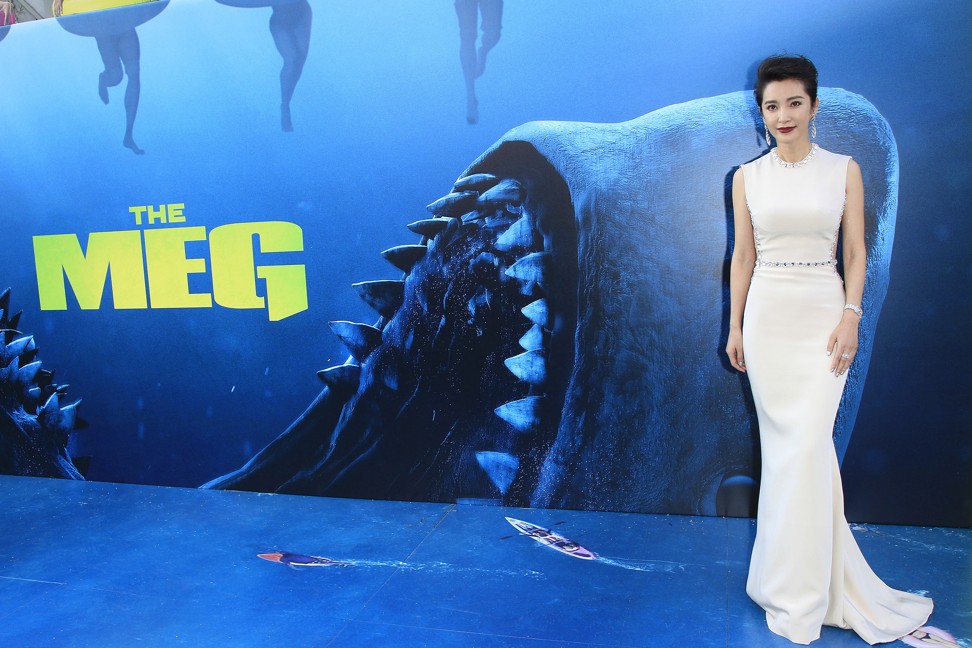
IMAX posts first drop in annual profit since 2016 as investments in expansion outpaced growth in box-office receipts
- IMAX China’s 2018 net profit fell 2 per cent to US$42.76 million, while sales declined 7 per cent to US$117.5 million
- The company showed 57 movies in its wide format last year, six more than in 2017, including such Hollywood blockbusters as Aquaman and China’s home made fare as Operation Red Sea

IMAX China Holding, a unit of the Canadian company that patented wide-format film, posted its first decline in annual earnings since 2016, as its investments for expanding its theatre network outpaced the growth in box-office receipts from screening its movies.
Net profit fell 2 per cent to US$42.76 million last year, missing the US$48.61 million estimate in Bloomberg’s survey. Sales declined by 7 per cent to US$117.5 million, below the US$126.75 million expected by analysts.
The company’s theatre network – specially constructed and equipped with wide horizontal screens to show IMAX-format movies – expanded by almost a fifth last year to 639 cinemas across mainland China, Hong Kong, Taiwan and Macau. That increased its maintenance cost, which added 11 per cent to its US$98.5 million in overheads.
IMAX showed 57 movies last year in the wide format, six more than in 2017, covering both Hollywood blockbusters such as Walt Disney Studios’ Avengers: Infinity War, based on Marvel Comics superhero team, as well as China’s home made fare including Operation Red Sea. Warner Brothers Pictures’ Aquaman, based on the DC Comics character of the same name, opened to a record US$10 million weekend in IMAX theatres when it was shown in December.

“Over the last six months, our box office performance and revenue generating power of the network has been on the upswing,” said IMAX China’s chairman Richard L. Gelfond, in a press release.
That growth brought IMAX’s box office receipts to US$337 million, up 16 per cent from a year earlier, as China’s expanding middle class devoted more of their disposable income to entertainment and leisure.
Still, revenue per screen fell 7.5 per cent to US$620,000 last year, as box-office receipts failed to keep pace with the expansion of IMAX’s network, and the number of screens.
Total box-office receipts in the country – including conventional movies, 3D films and IMAX format – has grown by 25 per cent between 2010 and 2018 to US$9.2 billion, fuelled by China’s expanding middle class.
IMAX will need to keep a robust growth rate in ticket sales to offset its spending on expansion, and the future outlook of the company depends on striking a balance between giving screen time to Hollywood blockbusters and China’s home-made fare.
The company said more Chinese-language movies will be shown in the IMAX format this year, as popularity for local production continues to grow. Though China limits the number of Hollywood films allowed to be screened each year, local-language films made up 62 per cent of all box office takings last year, from just over half in 2017, according to EntGroup, a Beijing-based entertainment research group.
At least 21 movies will be shown in IMAX format this year in China, including Warner Animation Group’s The Lego Movie 2: The Second Part, and several titles by Walt Disney: Captain Marvel, Aladdin, The Lion King and Frozen 2.
IMAX will expand its network in the new year to China’s smaller, third-tier cities and below, aiming to install between 90 and 95 new theatres across the country with its equipment and screen in 2019. As many as 1,260 locations have been identified to accommodate at least one IMAX theatre each.
Set up in 2010, IMAX currently has just under 40 per cent of its theatres in such cities, which represented a US$5.3 billion market in box office sales last year, up 9 per cent when compared to 2017, EntGroup said.
Last year 30 per cent of IMAX’s films shown were Chinese-language, up from 24 per cent in 2017, and this is projected to grow further, it said.
IMAX shares fell as much as 2.5 per cent in an advancing market to HK$19.42 in Hong Kong before earnings were announced, and were recently traded at HK$20.65.